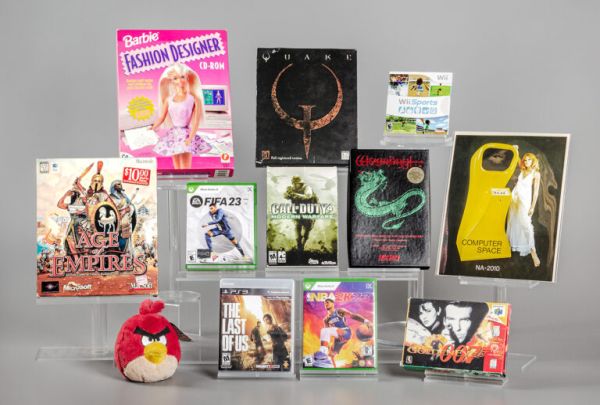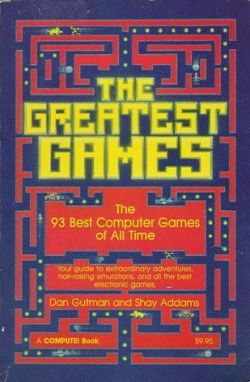 More than 70 Best Games lists have been used to create the Video Game Canon’s Top 1000 (with the oldest going all the way back to 1995). But did you know that an even earlier generation of writers were compiling notable lists in the 1980s?
More than 70 Best Games lists have been used to create the Video Game Canon’s Top 1000 (with the oldest going all the way back to 1995). But did you know that an even earlier generation of writers were compiling notable lists in the 1980s?
It’s true. People were already having fierce debates about which games should be considered the Best Games of All Time, even though we were just a decade removed from the launch of Computer Space.
Dan Gutman and Shay Addams, the editors of Computer Games magazine, were two writers who wanted to try their hand at creating just such a list. Branching out from their day jobs, the pair took their gaming expertise to Compute! Books, who agreed to publish The Greatest Games: The 93 Best Computer Games of All Time in January 1985.
The Greatest Games first appeared in bookstores during a very strange time for the industry. This was just after “The Great Video Game Crash” of 1983 marked the end of the line for the Atari 2600. But it was also a time when players were migrating over to a growing number of different computer platforms (especially outside the United States). You also have to remember what was still to come, as the book was published before Street Fighter II revitalized the arcade scene, before Tetris escaped the USSR, and before the NES changed everything.
So what were a couple of video game experts talking about as the best games ever in the 1980s?






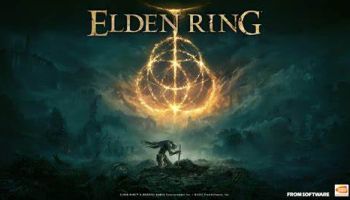
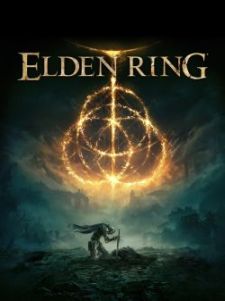 After wandering in the wilderness during the early part of the PS4 era, the God of War franchise came back in a big way with God of War (2018). With a new pantheon to slay, Kratos slashed his way into our hearts, and he helped Sony Santa Monica collect a decent chunk of accolades from reviewers and players alike during the 2018-2019 “Game of the Year” season (including a sweep at all five of the major year-end awards shows).
After wandering in the wilderness during the early part of the PS4 era, the God of War franchise came back in a big way with God of War (2018). With a new pantheon to slay, Kratos slashed his way into our hearts, and he helped Sony Santa Monica collect a decent chunk of accolades from reviewers and players alike during the 2018-2019 “Game of the Year” season (including a sweep at all five of the major year-end awards shows).
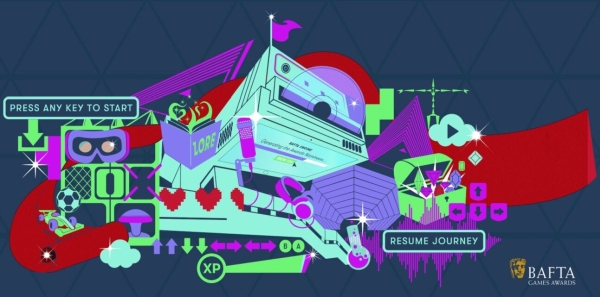

 Surprise… Surprise…
Surprise… Surprise…




 The organizers of South By Southwest have closed the doors on yet another festival within the Austin city limits, but for the first time in nearly a decade, they did so without the SXSW Gaming Awards. According to a spokesperson for the event, the Gaming Awards were discontinued this year in an effort to “streamline our festival a bit more.”
The organizers of South By Southwest have closed the doors on yet another festival within the Austin city limits, but for the first time in nearly a decade, they did so without the SXSW Gaming Awards. According to a spokesperson for the event, the Gaming Awards were discontinued this year in an effort to “streamline our festival a bit more.” The “Excellence in Gaming Marketing” award went to Ubisoft’s Assassin’s Creed IV: Black Flag for promoting a life of piracy.
The “Excellence in Gaming Marketing” award went to Ubisoft’s Assassin’s Creed IV: Black Flag for promoting a life of piracy.
